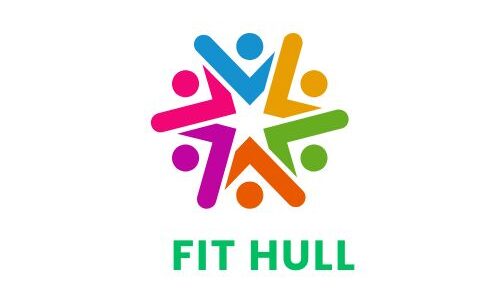Pennsylvania has emerged as a leader in online education, offering students from kindergarten through high school comprehensive virtual learning opportunities that rival traditional classroom experiences. Whether you’re seeking flexibility for a gifted student, accommodating special needs, or simply exploring alternatives to conventional schooling, Pennsylvania’s online education landscape provides numerous pathways to academic success.
The state’s commitment to digital learning has created a robust ecosystem of cyber charter schools, district-sponsored virtual programs, and hybrid learning models. This expansion of educational choices means Pennsylvania families now have access to personalized learning experiences that can adapt to individual student needs, schedules, and learning styles.
Understanding your options requires examining the different types of programs available, their academic performance records, and how they align with your educational goals. Pennsylvania’s online education system offers both promise and challenges that every family should carefully consider.
Types of Online Education Programs in Pennsylvania
Pennsylvania offers several distinct models of online education, each designed to serve different student populations and educational objectives.
Cyber Charter Schools
Cyber charter schools represent Pennsylvania’s most established form of online education. These state-funded institutions operate independently from traditional school districts while maintaining accountability to the Pennsylvania Department of Education. Students receive free tuition, textbooks, and often computer equipment necessary for their studies.
Major cyber charter schools like Pennsylvania Cyber Charter School, Commonwealth Connections Academy, and PA Virtual Charter School serve thousands of students statewide. These schools provide full-time online education with certified teachers, structured curricula aligned to state standards, and comprehensive support services including counseling and special education accommodations.
School District Virtual Programs
Many traditional school districts now offer their own online learning options, allowing students to remain within their local district while accessing virtual education. These programs often provide more flexibility than cyber charters while maintaining closer connections to local communities and resources.
District virtual programs typically serve students who need alternative scheduling, those recovering credits, or students seeking advanced courses not available in their home schools. The programs maintain the same academic standards and graduation requirements as traditional district schools.
Hybrid Learning Models
Blended or hybrid programs combine online instruction with face-to-face learning opportunities. These models might include online courses supplemented by periodic in-person meetings, laboratory sessions, or extracurricular activities at physical school locations.
Hybrid approaches appeal to families seeking flexibility without completely abandoning traditional school experiences. Students can benefit from self-paced online learning while maintaining social connections and hands-on learning opportunities.
Academic Performance and Quality Standards
Pennsylvania’s online schools must meet the same academic standards as traditional public schools, though their performance records show significant variation across different programs and student populations.
Standardized Test Results
Recent Pennsylvania System of School Assessment (PSSA) and Keystone Exam results reveal mixed performance among online schools. While some cyber charter schools demonstrate strong academic outcomes in specific subject areas, others struggle to match statewide averages in reading and mathematics proficiency.
The Pennsylvania Department of Education’s school performance profiles show that several established cyber charter schools have made steady improvements in recent years, particularly in graduation rates and post-secondary preparation. However, performance varies significantly among individual schools and student subgroups.
Graduation and College Readiness
Pennsylvania’s cyber charter schools have improved their four-year graduation rates substantially over the past decade. Schools like Pennsylvania Cyber Charter School report graduation rates approaching statewide averages, while also increasing the percentage of graduates pursuing higher education.
College readiness metrics indicate that online school graduates perform comparably to traditional school graduates on SAT scores and college enrollment rates, though success varies considerably based on individual school programs and student engagement levels.
Accountability and Oversight
Pennsylvania maintains strict oversight of online education providers through annual performance reviews, financial audits, and academic assessments. Schools that consistently underperform face intervention measures or potential closure, ensuring accountability to students and taxpayers.
The state’s accountability system examines factors including academic growth, graduation rates, college and career readiness, and school climate measures. This comprehensive approach helps identify high-quality programs while flagging schools needing improvement.
Benefits of Pennsylvania Online Education
Online education offers distinct advantages for many Pennsylvania students, making it an increasingly popular choice for families seeking educational alternatives.
Flexibility and Personalization
Online learning allows students to progress at their own pace, spending more time on challenging concepts while accelerating through material they master quickly. This personalized approach particularly benefits gifted students, those with learning differences, and students with unique scheduling needs.
Flexible scheduling accommodates students involved in competitive athletics, performing arts, or other intensive pursuits that require significant time commitments. Students can complete coursework during optimal learning hours while maintaining other important activities.
Access to Specialized Programs
Pennsylvania’s online schools often provide access to advanced courses, specialized curricula, and unique programs not available in smaller traditional schools. Students in rural areas can access Advanced Placement courses, foreign language instruction, and career-focused programs that might otherwise be unavailable.
Some online schools offer innovative programs in areas like cybersecurity, digital media, and environmental science, preparing students for emerging career fields while providing rigorous academic preparation.
Safe Learning Environment
Online education provides a safe alternative for students who have experienced bullying, social anxiety, or other challenges in traditional school settings. The virtual environment allows these students to focus on learning without social pressures that might otherwise interfere with their academic progress.
Students with health conditions, mobility challenges, or other circumstances that make attending traditional schools difficult can access high-quality education from home while receiving necessary support services.
Challenges and Considerations
Despite its benefits, online education presents unique challenges that families must carefully evaluate before making this educational choice.
Self-Motivation and Time Management
Online learning requires significant self-discipline and time management skills that many students are still developing. Without the structure of traditional classrooms, some students struggle to maintain consistent study habits and complete assignments independently.
Parents often need to provide additional oversight and support, particularly for younger students or those who have difficulty with self-directed learning. This increased parental involvement can be challenging for working families or those with multiple children.
Limited Social Interaction
While online schools provide various opportunities for student interaction through virtual clubs, activities, and field trips, the social experience differs significantly from traditional schools. Students miss daily face-to-face interactions with peers and teachers that contribute to social and emotional development.
Families choosing online education often need to actively seek additional social opportunities through community organizations, sports teams, religious groups, or homeschool cooperatives to ensure adequate social development.
Technology and Internet Requirements
Successful online learning requires reliable internet access and appropriate technology, which can present barriers for some families. While most cyber charter schools provide computers and technical support, families must ensure adequate internet connectivity and create appropriate learning spaces at home.
Technical difficulties can interrupt learning, and students need basic computer skills to navigate online platforms effectively. Schools typically provide training and support, but the technology learning curve can initially challenge some students and families.
Choosing the Right Online Program
Selecting an appropriate online education program requires careful evaluation of multiple factors to ensure the choice aligns with student needs and family goals.
Academic Program Quality
Research the academic reputation, curriculum offerings, and teacher qualifications of prospective schools. Examine school performance profiles, graduation rates, and college acceptance data to assess program quality. Contact current families and recent graduates to gain insights into their experiences.
Consider whether the school offers appropriate support services for students with special needs, English language learners, or those requiring academic intervention. Verify that the program provides adequate preparation for your student’s post-graduation goals.
Student Support Services
Evaluate the availability of counseling services, tutoring support, technical assistance, and extracurricular opportunities. Strong online programs provide comprehensive support systems that address academic, social, and emotional needs of their students.
Inquire about communication frequency between teachers and students, availability of live instruction sessions, and responsiveness to student questions and concerns. These factors significantly impact student success in online environments.
Family Fit and Logistics
Honestly assess your family’s readiness for online education, including parental availability for support, student self-motivation levels, and home environment suitability for learning. Consider how online schooling will impact family schedules and dynamics.
Evaluate transportation savings, scheduling flexibility benefits, and potential challenges like sibling distractions or workspace limitations. Ensure the decision aligns with your family’s values, goals, and practical circumstances.
Making Online Education Work for Your Family
Success in Pennsylvania online education requires intentional planning, consistent routines, and ongoing adaptation to ensure positive outcomes for students and families.
Start by establishing dedicated learning spaces, consistent daily schedules, and clear expectations for student responsibility and parental involvement. Regular communication with teachers and school counselors helps identify challenges early and maintain academic progress.
Connect with other online schooling families, participate in available social activities, and seek community involvement opportunities to ensure well-rounded educational experiences. Remember that online education represents one pathway among many, and families can adjust their approach as student needs and circumstances evolve.
Pennsylvania’s online education landscape continues expanding and improving, offering increasingly sophisticated options for families seeking alternatives to traditional schooling. By carefully evaluating available programs and preparing thoughtfully for the online learning experience, Pennsylvania families can access high-quality educational opportunities that serve their unique needs and circumstances.











